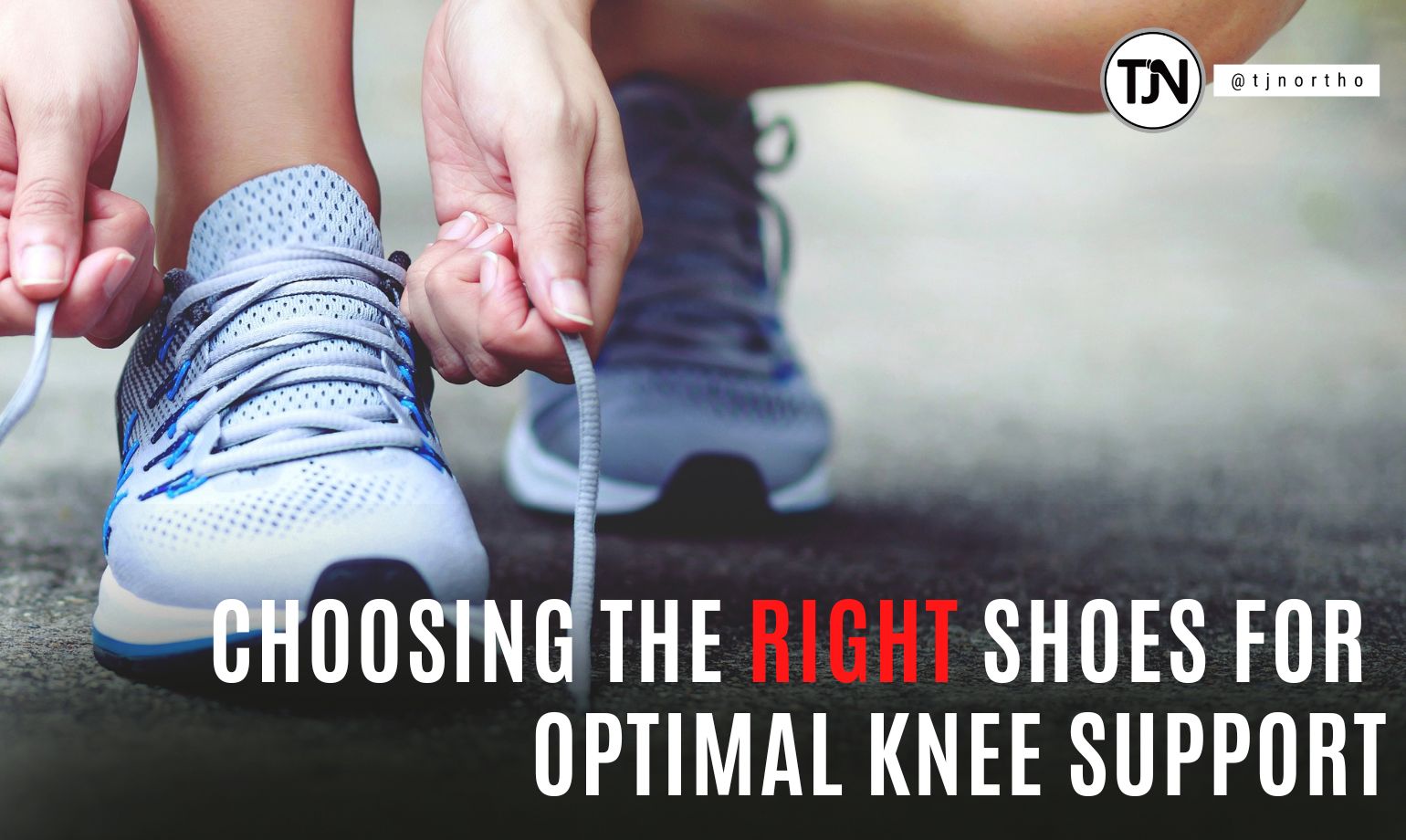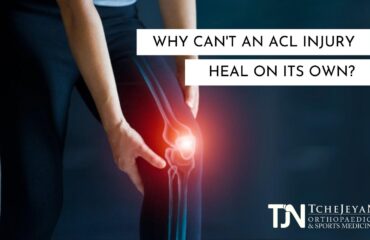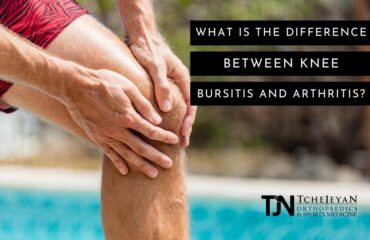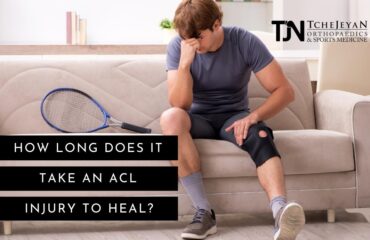Choosing the right shoes to protect your knee health is critical, especially when engaging in sports or other fitness activities. Wearing high heels for a dinner out or flip flops for sunbathing at the beach are fine, but they would be a poor shoe choice for your daily walk or playing a tennis match. At TJN Ortho, knee care is a top priority, and selecting appropriate footwear is one of the first lines of defense against knee pain.
Not all shoes are created equal; they differ in cushioning, support, and design, all of which can influence your knee health. It’s also crucial to recognize that what one company may market as, for example, a “walking shoe,” might not always be your optimal choice for walking. It may be marketed that way because it is sturdy and rigid. However, that type of shoe may interfere with your natural stride and exacerbate knee stress. In contrast, a shoe billed as a “running shoe,” with its increased cushioning and flexibility, might offer you a more suitable alternative.
Shoes for Every Activity
When shopping for shoes, pay less attention to how they are being advertised and more attention to how they work with your foot. Here are some things to consider:
- Foot Structure Matters: Visit a specialty retail shop where knowledgeable employees can assess the structure of your foot, observe your walking pattern, and provide tailored recommendations. Whether you have flat feet or high arches, the right shoe varies for each individual.
- Flexibility is Key: As a general rule, opt for flexible shoes. A good shoe should allow your foot to flex easily. Shoes that are hard to bend can restrict your foot, alter your stride, and worsen knee pain.
- Examine the Sole: Examine the soles to identify subtle changes in height from toe to heel. A higher heel can impact the bend of the knee, exerting extra pressure on the joint. Stability shoes, with thick, rigid soles, may increase the load on your knee compared to more flexible options with increased cushioning in the sole.
- Comfort is Non-Negotiable: Apart from who makes a shoe or how it is advertised, always remember that comfort reigns supreme. Trying on several pairs of shoes is necessary to find the one that fits and feels the best. The right shoes should be comfortable from the get-go, with no need to “break them in,” no matter what the salesman tells you.
- When to Shop: It is better to shop for shoes in the evening when your feet are at their largest to ensure the shoe will be comfortable all day. Also, when trying the shoes, wear the socks you would wear when using that shoe.
- Find What Works: Once you find a pair that suits your feet and provides the comfort and support you need, stick with it.
- Don’t Exceed a Shoe’s Lifespan: Bear in mind that shoes wear out, and it is essential to replace them when they no longer provide the support you need. Running shoes will probably need to be replaced every 300 to 500 miles while walking shoes can last much longer. For activities like playing tennis or basketball, your specialized shoes will last longer if you only wear them when playing the sport on the appropriate surface. If you are active in these sports, consider purchasing a new pair every season. However, rather than counting out miles or hours, pay attention to the condition of the shoes: worn-down tread patterns, uneven heel wear, or dimples in the sole will let you know when it is time to go shoe-shopping again.
Choosing shoes that are appropriate for the activities you engage in can help prevent knee injuries and joint degeneration. At Tchejeyan Orthopaedics and Sports Medicine, we specialize in knee care. Your knee health is critical to nearly every activity you undertake and for your mobility and independence. Accordingly, investing time in finding shoes that will preserve your knees is essential. If you experience knee pain or have injured your knee, contact TJN Ortho in Thousand Oaks, California. We’ll work to get you back on your feet and ready to engage in your favorite activities.




